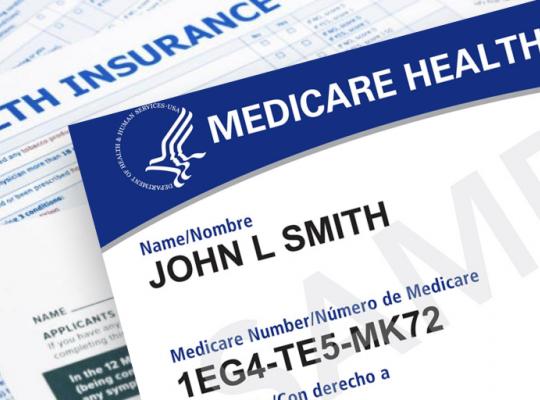Penalties for Not Signing Up for Medicare
If you are just learning that there are late enrollment penalties for Medicare insurance, you are likely here to research how to avoid them. Incurring penalties from enrolling in a Medicare program at the wrong time can be an expensive proposition. These are avoidable by knowing when to enroll in Medicare and how the system needs to be navigated. Keeping more of your money in your pocket is essential, after all.
Many people have already found that not prioritizing their Medicare insurance coverage can prove to be costly. Penalties for not signing up for Medicare coverage can be pricey, but fortunately, they are also easy to avoid. By understanding what the late enrollment penalties are for the various types of coverage, you will have a better understanding of how important it is to avoid them. Late enrollment penalties are in existence for Medicare Part A, Medicare Part B, and Medicare Part D.
Late Enrollment Penalty With Part A
The penalty for late enrollment in Medicare Part A can be hefty. People who have paid Medicare taxes through their place of employment, as well as people who have worked for at least ten years, premium-free Part A coverage plans are available. Those who meet any of these requirements are automatically eligible. This includes the vast majority of Medicare beneficiaries, coming in at 99% of people who sign up. People who do not have enough work credits will need to pay a premium for Medicare Part A.
If you need to pay premiums for Medicare Part A, you need to enroll as soon as you are eligible for the coverage. If you do not, you can be subject to penalties. For people who delay their enrollment in Medicare Part A, here are how the penalties work. These penalties equal 10% of a person’s Part A premiums. This 10% penalty can add up. The longer a person waits to get their Part A plan, the more severe the penalty is. People can estimate the penalties they will be paying by doubling the time they waited to get the policy. For people who waited three years to enroll in Medicare Part A, the Part A penalty would need to be paid each month for the next six years after signing up. This can get quite costly, quite quickly.
Late Enrollment Penalty With Part B
Just like applying for Part A Medicare, Part B Medicare needs to be applied for. This is the case if you are not already receiving Social Security benefits. Enrollment initially happens during your Initial Enrollment Period. Part B Medicare coverage has a premium to it each month. The premium is based on the amount of income a person makes within the year. If you do not apply for Medicare Part B coverage during your Initial Enrollment Period, a penalty will be assessed. The penalty for Part B late enrollment is lifelong.
The penalty for delaying this type of insurance is 10% for each year you do not have creditable coverage. If you, for example, delay getting Part B coverage through Medicare for five years, your premiums will go up 50% for as long as you have Part B insurance coverage. People can avoid paying these lifelong penalties by enrolling for Part B insurance coverage during their initial enrollment period.
Keeping more money in your bank account is important, and by taking care of your responsibilities to enroll for Medicare, you keep your savings higher.
Late Enrollment Penalty With Part D
Prescription drug coverage is another vital part of healthcare insurance. You are not required to obtain this kind of coverage, but many professionals recommend getting it. Having insurance for both your current medications and your future ones and save you a lot of money. Also, if you choose not to enroll in Medicare Part D during your initial enrollment period, and try to register for it at a later point, you will be assessed a penalty.
The penalty for not enrolling in Medicare Part D during your initial enrollment period is also a penalty that is added to your monthly premium. This premium is determined by multiplying 1% of the national base premium by the number of uncovered months without coverage. In order to determine a person’s penalty, the monthly premium they have is multiplied times 1% as well as times the number of months that coverage is delayed.
Final Notes
It is possible to not enroll in Medicare after your initial enrollment period and still not pay penalties. This can be done if a person has qualifying insurance from a different source, like through their spouse or their employer's insurance. It is not always needed for someone who has creditable coverage of this type to enroll in Medicare, but there are still benefits for enrolling during your initial enrollment period. Take the time to use the tools here and be prepared to get your Medicare coverage as soon as possible.




Comments